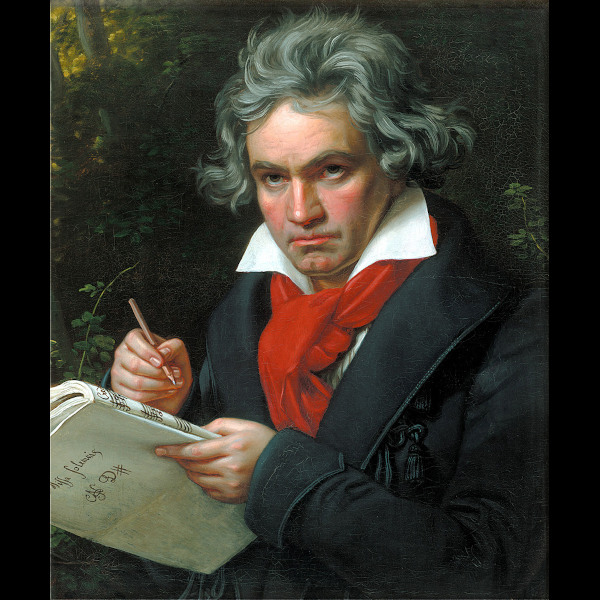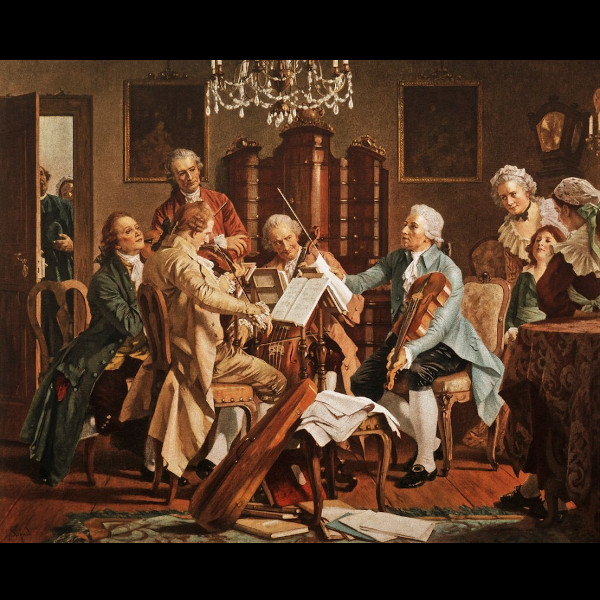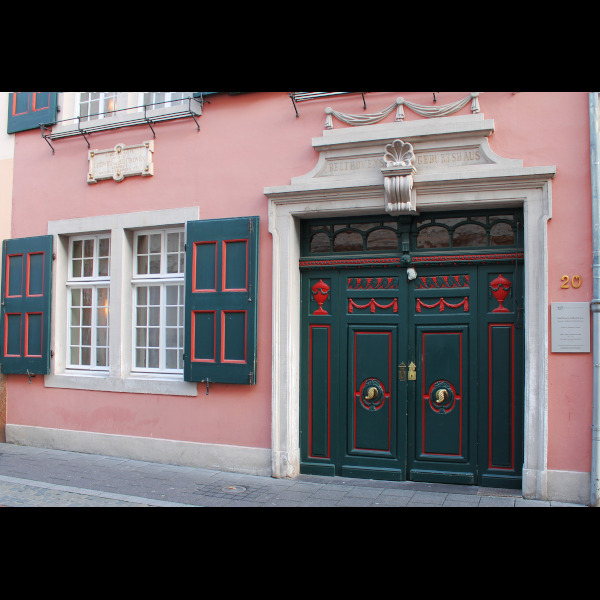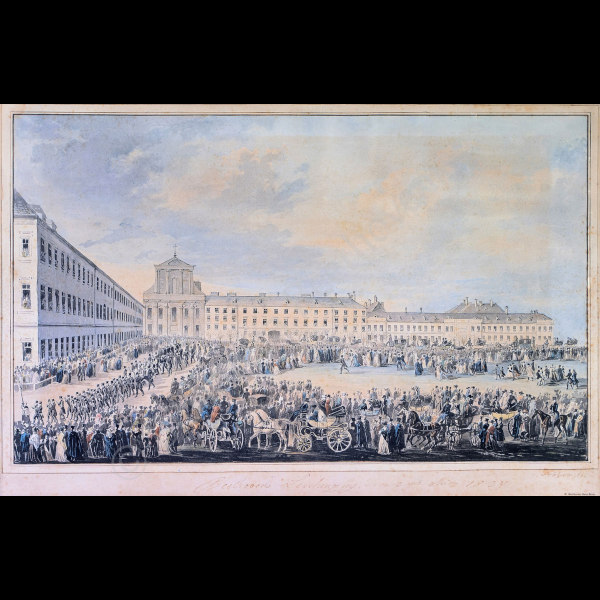DNA spotlight
Ludwig van Beethoven

In December 1770 Ludwig van Beethoven was born in Bonn at Bonngasse 20 and baptized with the name of his famous grandfather - a successful musician from Flemish Belgium - and he was given this name in hopes to surpass his famous ancestor. Recognizing he had a prodigy his hands, Ludwigs father Johan van Beethoven tried to present his talented son at his first show at the age of 7. His father pushed him hard and would wake him in the middle of the night to practice his music. By the age of 16 Beethoven was employed as court organist in Bonn by the brother of Emperor Josef of Vienna. The same year he visited Vienna, met Mozart and returned home shortly before his mother died. His father become an alcoholic and forced to retire from his job in service of the Court. Ludwig was forced into adulthood, making real money and had to take care of his two younger brothers. In 1792 at the age of 21 Beethoven arrives in Vienna - the cultural capital - a city overflowing with music in hopes to expand his future. Wolfgang Amadeus Mozart had died just the year before and the great composer Haydn was ageing - destiny had prepared a place for Beethoven. Music is everywhere - and in less than a year he creates a big name for himself. Beethoven catches the attention of the famous composer Haydn who is amazed at the young talent who arrived from Bonn and begins studying with him.

One of the most important things for Beethoven was making contact with the aristocrats - who hosted concerts in their palaces on a weekly basis. They would meet regularly and host the best musicians of the town. He would seek sponsors who would let him make music the way he wanted rather than what was expected of him. Aristocratic patrons such as Joseph Franz von Lobkowitz around the same age as Beethoven would seek fun in their palaces and inviting a wild child like Beethoven made life exciting. These patrons were critical for Beethovens finances. However by his mid 20s Beethoven noticed his hearing was disappearing. He had to site closer and closer to the stage to hear the notes and music. This began with the high frequency notes such as piccolos, flutes and top of the violin while maintaining the lower frequencies. This would distort what he was hearing. He became isolated from conversations and began avoiding people. Losing hearing, the one important element of his senses was the cruelest form of torture. This is when he wrote his famous Moonlight Sonata as the music reflected his own mortality. The ideas came faster to him than he could digest them - he changed the course of music. He stood between 2 generations - one foot firmly ground in Mozart / enlightenment and Goethe. His other part was a member of romanticism - he transformed music from enlightenment into romanticism.

At 41 his personal love relationships had been a disaster - typically he chased after aristocratic ladies who were not available. At this time he wrote a 10 page love letter to his mysterious immortal beloved. He wrote how she is not completely his and he is not completely hers. Both of his brothers moved to Vienna and he is helping his family with their relationships and living costs. In November 1815 his brother Kaspar dies of Tuberculosis and Beethoven appeals to the high courts to get guardianship of his nephew Karl. By 1825 however their relationship became strained. The nephew of Beethoven slipped away from his control and began a military career. He retired in 1832 and had four daughters and one son also named Ludwig. This Ludwig fled to Munich, claimed he was the grandson of Ludwig van Beethoven, and worked for King Ludwig II of Bavaria who gave him a healthy salary. Eventually he got into legal troubles and moved to America changing his name to von Haven. Meanwhile our Spotlight Ludwig van Beethoven never married - it is thought his immortal beloved could be Josephine von Brunswik or Antonie Brentano. Regardless of his troubled personal life, Beethoven focused on his career and saw himself as a musical equivalent to Napoleon Bonaparte trying to liberate music from old fashioned styles.

Beethovens rage and temper led to his demise - after visiting his brother Johann he got into an argument and demanded to head back to Vienna in the middle of winter. This involved travelling in an open cart in December. Beethoven fell ill, summoned a doctor and friends. From bed he composed his last piece named We all make mistakes but everyone makes them differently. His last request was for wine from the Rhine - eventually the bottles finally came. Upon their arrival his last words were pity too late - and then Beethoven fell into a coma and never woke up again. The main cause of his death proved to be cirrhosis of the liver - typically caused by chronic alcohol abuse. His funeral was the 29th of March, 18000 people showed up to follow the funeral procession. Beethoven is buried like an aristocrat which he always wanted to be in a moral and ethical way. Beethoven is a composer of the human soul - who personally transformed music from the era of Enlightenment to Romanticism. Despite losing his ability to hear, the quality of his work seemingly only improved. Today his music appears everywhere and he is best known for his 9th Symphony, Moonlight Sonata, Fidelio, Pathetique, Piano Concerto No. 4, Hammerklavier, Grosse Fugue, Eroica and Missa Solemnis.
Ludwig van Beethoven Wiener Zentralfriedhof
- Sample ID: lvb
- Year: 1827 AD
- Sex: Male
- Location: 48.1525, 16.44



